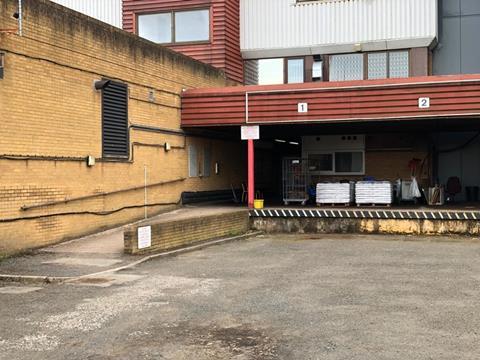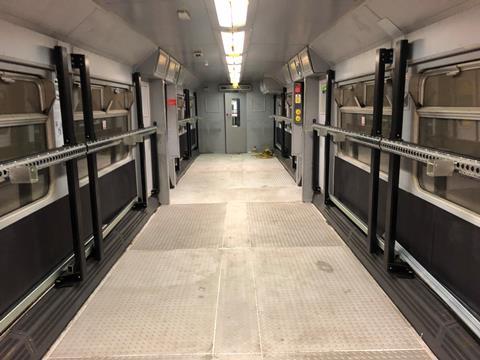
UK: An Anglo-Scottish express parcels and freight service is being planned by start-up Varamis Rail, which is seeking to revive a number of moribund or lightly used former mail and freight terminals across the network.
Led by qualified driver Phil Read, Varamis has a staff of seven and hopes to run its first demonstration trials within the next couple of months. Speaking to Rail Business UK during an exclusive visit to the former Red Star Parcels transfer point at Birmingham International station on September 8, Read explained that Varamis would be ‘zero carbon from the start’ by focusing solely on electric rail operations.

The company plans to use reconditioned Class 319 or 321 EMUs to provide overnight services on a circular route linking lowland Scotland with the Midlands, Doncaster and London. Key terminals would include Mossend and the South Yorkshire Rail Freight Terminal at Doncaster, as well as a number of potential station sites including Birmingham International, where Varamis already has an access agreement in place with operator Avanti West Coast.
‘We are in the early stages of preparing a proof of concept’, Read confirmed. ‘We hope to get that first train running in the next few weeks, and once we’ve done a proof of concept we will seek further backing from financiers and the logistics sector.’ Initial interest in the concept has already been shown by DHL, among others.
The initial service plan envisages trains leaving Mossend in the early evening to reach at Birmingham in the early hours before continuing to a terminal in London, potentially the Princess Royal Distribution Centre at Willesden which Read describes as ‘underutilised’. Varamis has already secured firm paths in the West Coast Main Line working timetable until May 2022.
‘New rail freight’ players emerge
Varamis is one of a number of companies exploring the potential for ‘new rail freight’ services using converted passenger rolling stock. Read insisted that his offering had a number of ‘unique selling points’, including a commitment to using only electric or electric-battery traction for its services, and its sole focus on the express logistics segment. ‘We won’t be getting involved in other operations — our objective is to get rail services embedded into existing logistics chains, and we believe we can do that.’
He explained that the company was had identified two market niches to explore. The ‘B2C flows’ would generally target consumers in central Scotland with goods being shipped from logistics hubs in the Midlands. In order to minimise the transfer penalty associated with rail, Varamis hopes ultimately to operate its own last mile deliveries using zero carbon vans or cargo e-bikes. Roll cages would be loaded by postcode for rapid onward transhipment at the end of the rail haul, helping to mitigate the ‘double handling’ issue, Read explained.

The second market niche would be a B2B service focused on southbound flows of manufacturing goods, textiles and other lightweight shipments. Here the key would be to embed the rail leg into existing logistics chains. ‘The road haulage sector is already firmly embedded into the workflows of the logistics industry’, said Reed. ‘We need to make sure that rail can do likewise, which hasn’t been the case in recent years.’
He sees potential for the development of ‘across the road’ warehouse handling at a number of locations including Birmingham and Doncaster. ‘We know we can be scalable which should appeal to logistics companies, especially at peak shipment times like Christmas.’
Varamis is keen to work with other rail industry partners to develop its offering, including other freight operators. Read acknowledged ‘significant’ support from DB Cargo UK, as well as leasing companies Eversholt and Porterbrook, both of which own large numbers of off-lease commuter EMUs.
Looking ahead, Read insisted that the express freight market was ‘more than big enough’ to support multiple operators. ‘As we emerge from the pandemic, this is a potentially valuable source of revenue for the railway, while also helping major corporations like Amazon and others to reduce their carbon footprints’, he concluded.



